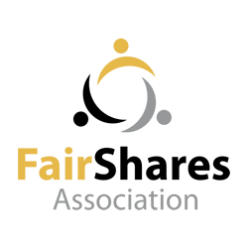(First published 30/1/2013)
At the heart of the FairShares Model are three social entrepreneurial challenges: ethical trading; social purpose; and democratic control. In this blog, I’m going to talk about the challenge presented by the third of these – democratic control.
The founder members of the FairShares Association were faced with a number of decisions in the run up to its formal launch. We needed to agree whether or not to incorporate the association, whether to start offering subscription options to supporters, and how to proceed with a volunteering scheme. But we had a challenge. One founder (Cliff Southcombe) was doing work for the British Council in Africa, another (Geof Cox) was working on projects in France, three of us (Emma Green, Morgan Killick and myself) were in Sheffield, but all in different places, and the last of us (Nicci Dickins) was in Stockport, near Manchester.
How can we make decisions when – as Cliff has put it – we’re often not in the same country, let alone the same city or room?
No worries. We hold all our files on DropBox. Wherever we are, we can all access documents as if we were on a local network. In fact, it is better than a local network because DropBox makes copies of all files locally – they load and save faster than a local area network, and the uploading/downloading from the Cloud occurs seamlessly behind the scenes. So, preparing and sharing information before decisions are made is now straightforward.
But how do we reach a decision or consensus? A few months ago my daughter got fascinated by the US elections. On election night we watched the results come in by internet as well as the TV. On the internet site, I learned that it is not just the president that people vote for. In each state, local referenda take place. In the UK, our politicians get apoplectic if ‘the people’ get the chance of one referendum in a generation. In the US, voters not only elect a president and members of each house, but also get a series of votes on state laws.
That gave me an idea. Why not use SurveyMonkey to ensure that ‘the people’ can make decisions prepared by a governing body? The free SurveyMonkey account allows you to ask up to 10 questions – more than enough for the needs of most governing bodies in a single meeting. There is a bit of preparation needed, of course, the issues and a summary of known arguments need to be put into a survey instrument. A basic degree of computer literacy is needed to send out the survey with a covering e-mail, and it does depend on your membership using e-mail (which is highly dependant on their socio-economic context). None of these challenges are insurmountable, however, particularly to people whose job includes the routine preparation of material for board meetings. With the help of social enterprises assisting digital access, internet access is more available than ever. And, with the arrival of affordable tablets and smart phones, it is even possible take instant votes in meeting after the alloted amount of time for debate (not tried that yet, but there is a twinkle in my eye at the possibility!).
I’ve already used this approach to support member-led decision-making at Co-operatives Yorkshire & Humber. We broke down a Co-operatives UK proposal into its constituent parts and asked members to indicate which sub-proposals they would support. If they did not support a sub-proposal, they could say what would need to change before their support would be secured. Those suggestions then went forward into negotiations with Co-operatives UK.
At the FairShares Association, we had a different challenge. We didn’t have firm proposals to vote for on a yes/no basis. We had a series of questions and options. With SurveyMonkey set up – we expressed our preferences. We had 6/6 votes to set up an unincorporated co-operative association. This implements the FairShares Model, but outside Company and Cooperative Law. It delays incorporation until there is a specific need for it. We has 4/6 votes in favour of not taking donations and subscriptions until we have thought through the pros and cons of different income generation schemes. We want to develop our social enterprise plan first. Lastly, we has 6/6 votes in favour of asking a PhD student at Sheffield Hallam who is interested in volunteering for the association to develop a volunteering policy/proposal on which we can vote in future. In one case, we offered two options, but in two cases we offered three (to reflect the debates that had taken place beforehand). It seemed to work – even if only to eliminate options that nobody supports. In the future, we can explore the benefits of ranking options rather than choosing just one (the equivalent of an on-line ‘transferrable vote’ to developing a consensus).
So – are you using SurveyMonkey (or another survey system) to facilitate participatory management and democratic governance?
